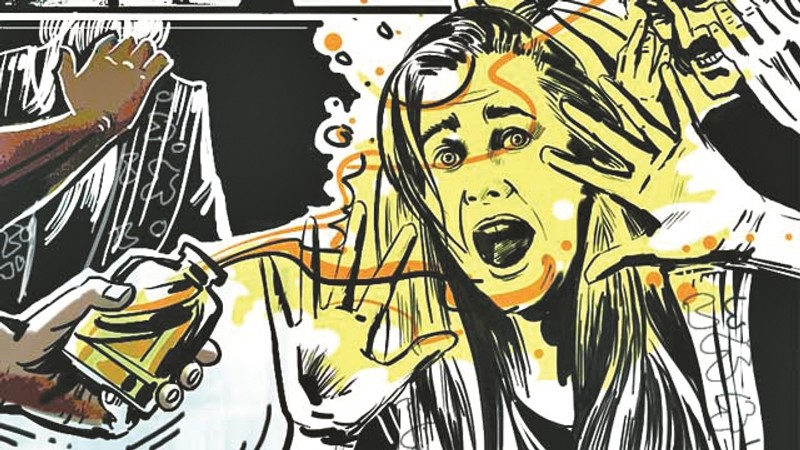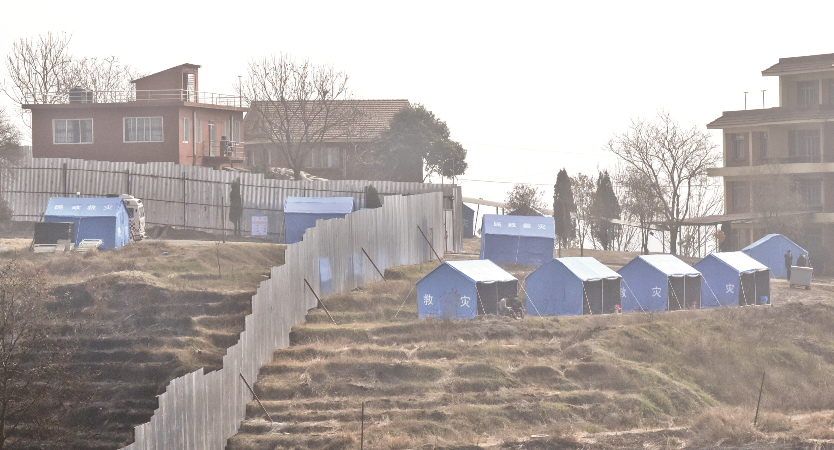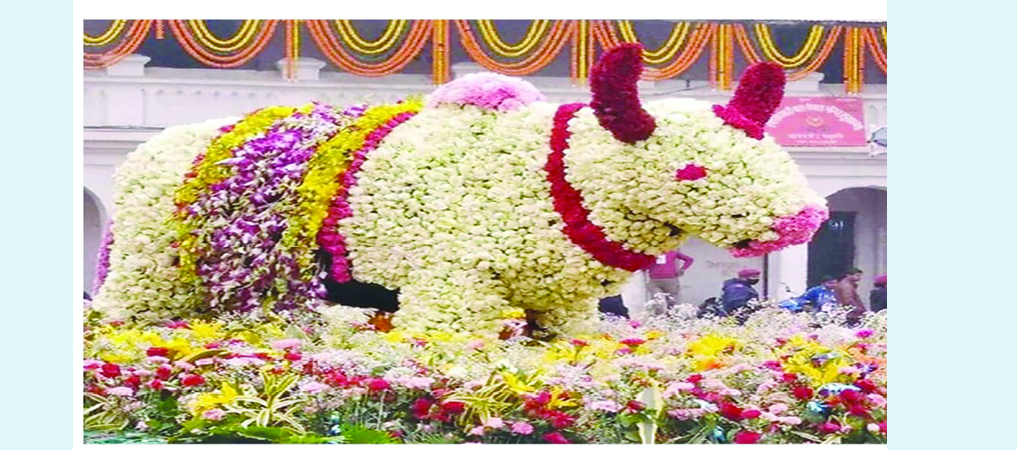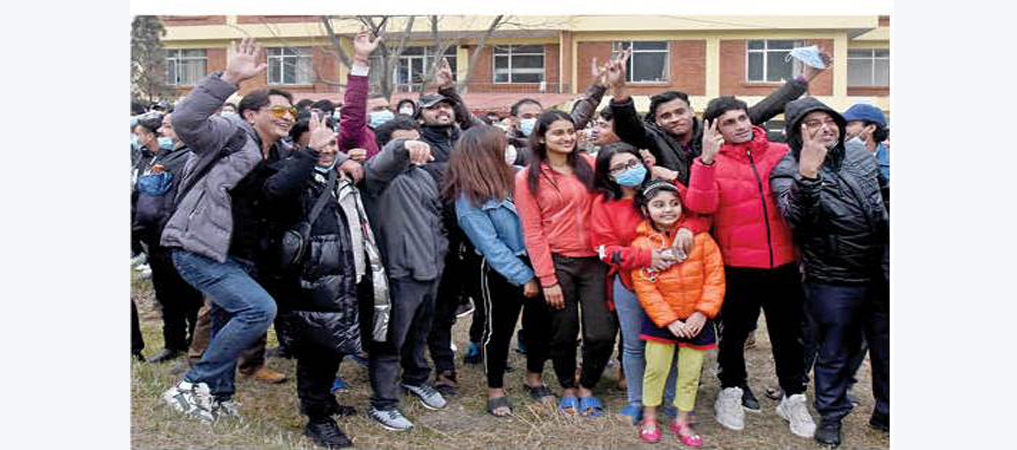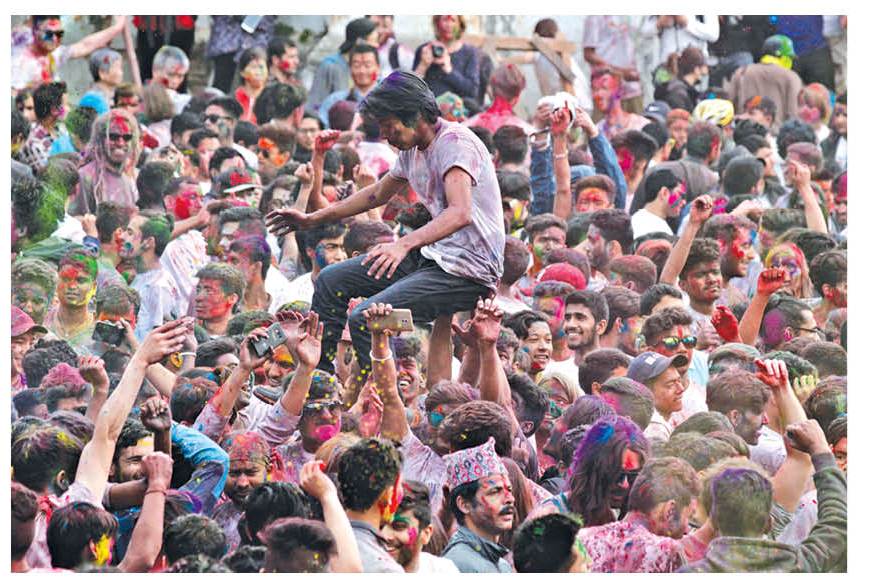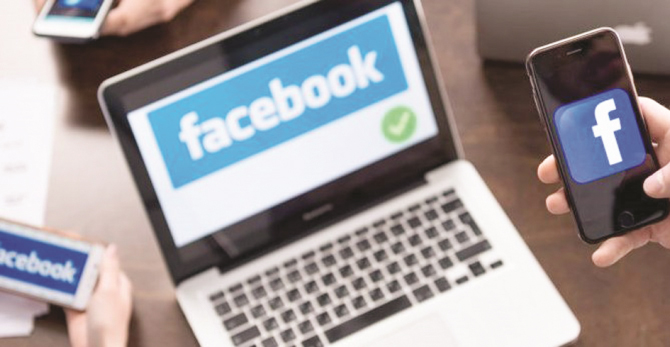Effect of COVID-19 lingers even after testing negative: Patients

By Sampada A. Khatiwada
Kathmandu, Nov. 6: The cases of novel coronavirus infection have been on the surge in Nepal in recent times. Along with thousands of infections being reported daily, thousands of patients are recovering daily too. As per the Ministry of Health and Population (MoHP), Nepal's COVID-19 recovery rate as of Thursday is at 79.8 per cent.
The recovery rate suggests that majority of the SARS-CoV-2 infected patients have been able to defeat the infection by staying in home isolation and a few are requiring medical support. However, those who have recovered from COVID-19 say that they had to suffer from illness even after recovering, i.e., testing negative.
Dr. Anup Bastola, spokesperson at the Sukraraj Tropical and Infectious Disease Hospital, Teku, said that the effects of novel coronavirus infection in people were observable even months after recovering from the infection.
"As per the experiences of some recovered patients, COVID-19 impacts some people more severely than the others," said Dr. Bastola. He added that as virus was just 11-months-old and new findings were being made daily via various researches, not much could be said about the long-term effect of the virus.
"However, it is difficult for some people to get back into normalcy even after testing negative for the virus," added Dr. Bastola. "Some of the common problems seen in COVID-19 patients even after recovery are difficulty in breathing, mild fever, continuous cough and chronic fatigue, among others."
Dr. Bastola said that some people even suffered from pneumonia and cardiovascular disease after recovering from COVID-19. Prabisha KC, 23, from Machhapokhari has a similar tale to tell. "My COVID-19 experience taught me that testing negative doesn’t mean recovery," she said.
KC said that after testing positive for the virus, she spent her first few days in home isolation in pain. "The headaches and body pain were unbearable and I had no appetite. However, as the days passed by, I began feeling a sense of relief," she added.
"After staying in home isolation, I tested negative for the virus. I thought that life moved back to normalcy and I could rejoin my office from the next day. But that was not so. Apparently my pain and battle with COVID-19 started after testing negative," said KC.
She added that even two weeks after testing negative, she was experiencing palpitations, body pain, chest pain, shortness of breath and extreme fatigue. "I am just 23 years old and I feel tired and dizzy after sitting in front of the computer for half-an-hour straight," she said.
Likewise, Ramesh Thapa, 46, lost his father to pneumonia after recovering from COVID-19. "In August, all of our family members had contracted the virus. All of us stayed in home isolation, while my 85-year-old father was admitted to the hospital."
Thapa said that all of their PCR test reports came out negative 20 days after contracting the virus. "My father was also discharged from the hospital. However, within a week after returning home, he started showing symptoms of pneumonia. We rushed him to the hospital but even after repeated treatment, we couldn’t save him," he added.
Thapa said that life after COVID-19 was not normal to his family. "Body pain and fatigue has been an everyday thing for us. On top of it, the void left by our father and the emotional trauma that we are going through is inexplicable," he said.
Meanwhile, Dr. Bastola said that the treatment for illness that people suffer from after recovering was dependent upon the symptoms they showed. "Having a balanced diet, exercising and living a healthy life could help in coping with fatigue, body pain and headache. However, medical assistance and treatment will be needed for those who show the symptoms of pneumonia or suffer from any other chronic illness including cardiovascular disease," he added.
Both, KC and Thapa said that life after COVID-19 was not as easy as it seemed. "Although the infection is not fatal, it takes a heavier toll on our physical and mental health for a longer term even after recovery," said KC.
Recent News

Do not make expressions casting dout on election: EC
14 Apr, 2022
CM Bhatta says may New Year 2079 BS inspire positive thinking
14 Apr, 2022
Three new cases, 44 recoveries in 24 hours
14 Apr, 2022
689 climbers of 84 teams so far acquire permits for climbing various peaks this spring season
14 Apr, 2022
How the rising cost of living crisis is impacting Nepal
14 Apr, 2022
US military confirms an interstellar meteor collided with Earth
14 Apr, 2022
Valneva Covid vaccine approved for use in UK
14 Apr, 2022
Chair Prachanda highlights need of unity among Maoist, Communist forces
14 Apr, 2022
Ranbir Kapoor and Alia Bhatt: Bollywood toasts star couple on wedding
14 Apr, 2022
President Bhandari confers decorations (Photo Feature)
14 Apr, 2022





